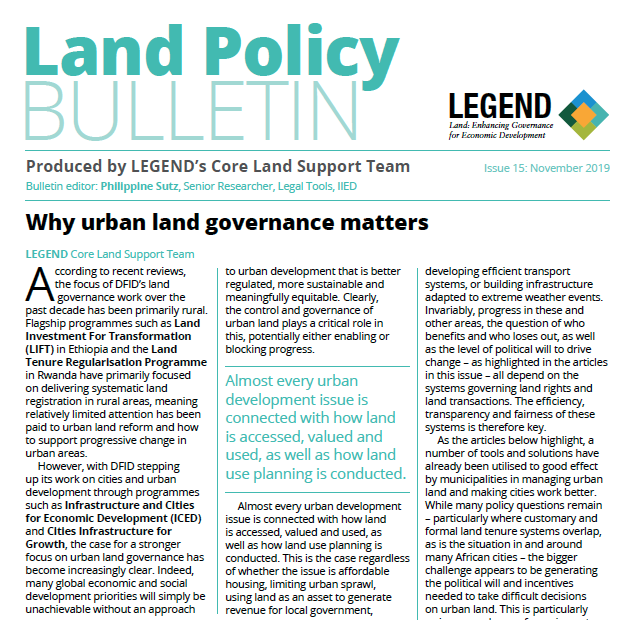According to recent reviews, the focus of DFID’s land governance work over the past decade has been primarily rural. Flagship programmes such as Land Investment For Transformation (LIFT) in Ethiopia and the Land Tenure Regularisation Programme in Rwanda have primarily focused on delivering systematic land registration in rural areas, meaning relatively limited attention has been paid to urban land reform and how to support progressive change in urban areas.
However, with DFID stepping up its work on cities and urban development through programmes such as Infrastructure and Cities for Economic Development (ICED) and Cities Infrastructure for Growth, the case for a stronger focus on urban land governance has become increasingly clear. Indeed, many global economic and social development priorities will simply be unachievable without an approach to urban development that is better regulated, more sustainable and meaningfully equitable. Clearly, the control and governance of urban land plays a critical role in this, potentially either enabling or blocking progress. This bulletin explores these issues further.

